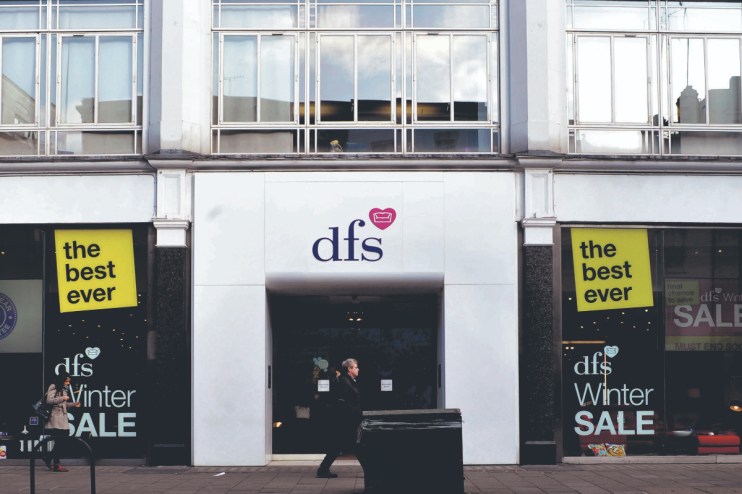DFS: ‘Improved performance’ couched by rising national insurance, wages and rates

DFS Furniture reported its group order intake was up over 10 per cent as it gained a higher than expected market share gains for both of its brands.
The group, which also owns Sofology, revealed in its half-year update to 29 December, that group profit before tax is expected to be around £16-17m, up from around £7-8m year on year.
Its gross delivered sales expected to be up 1.4 per cent year-on-year, order bank closing higher year-on-year, as the group noted it was driven by continued Red Sea shipping delays and order intake strengthening through the period.
The group told shareholders that its profit increase was driven by the “higher sales, operating cost savings and gross margin improvement more than offsetting current inflationary increases”.
While its net bank debt at the end of the period down to £117m.
DFS stated that its “important winter sale trading period” started in line with its expectations.
For its outlook, the group said it continues to expect full year growth in profits and cash flow with the financial year of 2025’s profit before tax, to be in-line with current consensus.
However, its profit delivery now expected to be weighted to the first half driven by a cautious view on market demand in the second half, based on UK economic performance post budget.
And it noted the increase in operational costs in the second half due to the rises in national insurance contributions (NIC), the national living wage and higher than anticipated interest rates alongside our investment to drive future growth.
Commenting on the news, DFS CEO Tim Stacey said: “While the market remains relatively subdued, we are continuing to deliver on our self help initiatives having strengthened our position as the clear market leader, improved our gross margin and reduced our operating costs, all of which have helped us to deliver year on year profit.”
“We remain focused on executing our plan, and are cautiously optimistic despite the increased inflationary pressures and less positive market outlook for 2025,” he added.
DFS’s share price has been healthy recently, up by 25 per cent in the past 12 months, and 17 per cent in the past six months.
It still hasn’t fully recovered form the pandemic, when its share price plummeted however, with the firm’s stock down 52.11 per cent over five years.
Dan Coatsworth, investment analyst at AJ Bell stated that “unfortunately, the situation in the UK is uncertain and that is reflected in DFS’ warning of sluggish demand as 2025 gets underway.”
“Reupholstering the company’s strategy delivered improved profit in the six months to the end of December as costs came out of the business. However, cost pressures are likely to increase again thanks to hikes in the national living wage and employers’ national insurance contributions,” he added.